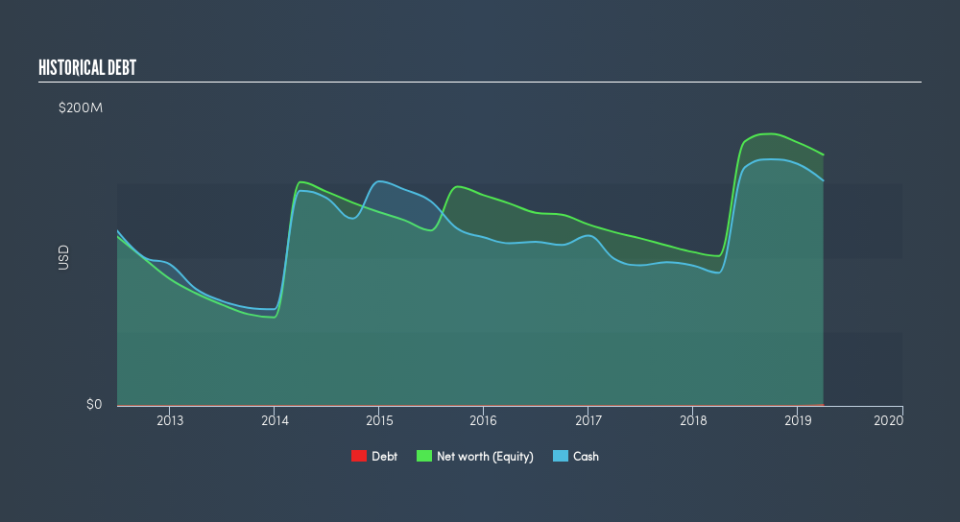Such Is Life: How Geron (NASDAQ:GERN) Shareholders Saw Their Shares Drop 58%

Want to participate in a short research study? Help shape the future of investing tools and you could win a $250 gift card!
Investing in stocks comes with the risk that the share price will fall. And there's no doubt that Geron Corporation (NASDAQ:GERN) stock has had a really bad year. The share price has slid 58% in that time. We note that it has not been easy for shareholders over three years, either; the share price is down 42% in that time. The good news is that the stock is up 1.7% in the last week.
View our latest analysis for Geron
Geron recorded just US$805,000 in revenue over the last twelve months, which isn't really enough for us to consider it to have a proven product. This state of affairs suggests that venture capitalists won't provide funds on attractive terms. As a result, we think it's unlikely shareholders are paying much attention to current revenue, but rather speculating on growth in the years to come. It seems likely some shareholders believe that Geron has the funding to invent a new product before too long.
As a general rule, if a company doesn't have much revenue, and it loses money, then it is a high risk investment. There is almost always a chance they will need to raise more capital, and their progress - and share price - will dictate how dilutive that is to current holders. While some such companies go on to make revenue, profits, and generate value, others get hyped up by hopeful naifs before eventually going bankrupt. It certainly is a dangerous place to invest, as Geron investors might realise.
When it last reported its balance sheet in March 2019, Geron could boast a strong position, with cash in excess of all liabilities of US$146m. That allows management to focus on growing the business, and not worry too much about raising capital. But with the share price diving 58% in the last year, it could be that the price was previously too hyped up. The image below shows how Geron's balance sheet has changed over time; if you want to see the precise values, simply click on the image.
In reality it's hard to have much certainty when valuing a business that has neither revenue or profit. Given that situation, would you be concerned if it turned out insiders were relentlessly selling stock? I would feel more nervous about the company if that were so. It costs nothing but a moment of your time to see if we are picking up on any insider selling.
What about the Total Shareholder Return (TSR)?
We'd be remiss not to mention the difference between Geron's total shareholder return (TSR) and its share price return. The TSR attempts to capture the value of dividends (as if they were reinvested) as well as any spin-offs or discounted capital raisings offered to shareholders. Geron hasn't been paying dividends, but its TSR of -58% exceeds its share price return of -58%, implying it has either spun-off a business, or raised capital at a discount; thereby providing additional value to shareholders.
A Different Perspective
While the broader market gained around 6.6% in the last year, Geron shareholders lost 58%. Even the share prices of good stocks drop sometimes, but we want to see improvements in the fundamental metrics of a business, before getting too interested. Regrettably, last year's performance caps off a bad run, with the shareholders facing a total loss of 11% per year over five years. We realise that Buffett has said investors should 'buy when there is blood on the streets', but we caution that investors should first be sure they are buying a high quality businesses. You might want to assess this data-rich visualization of its earnings, revenue and cash flow.
If you are like me, then you will not want to miss this free list of growing companies that insiders are buying.
Please note, the market returns quoted in this article reflect the market weighted average returns of stocks that currently trade on US exchanges.
We aim to bring you long-term focused research analysis driven by fundamental data. Note that our analysis may not factor in the latest price-sensitive company announcements or qualitative material.
If you spot an error that warrants correction, please contact the editor at editorial-team@simplywallst.com. This article by Simply Wall St is general in nature. It does not constitute a recommendation to buy or sell any stock, and does not take account of your objectives, or your financial situation. Simply Wall St has no position in the stocks mentioned. Thank you for reading.

 Yahoo Finance
Yahoo Finance 
